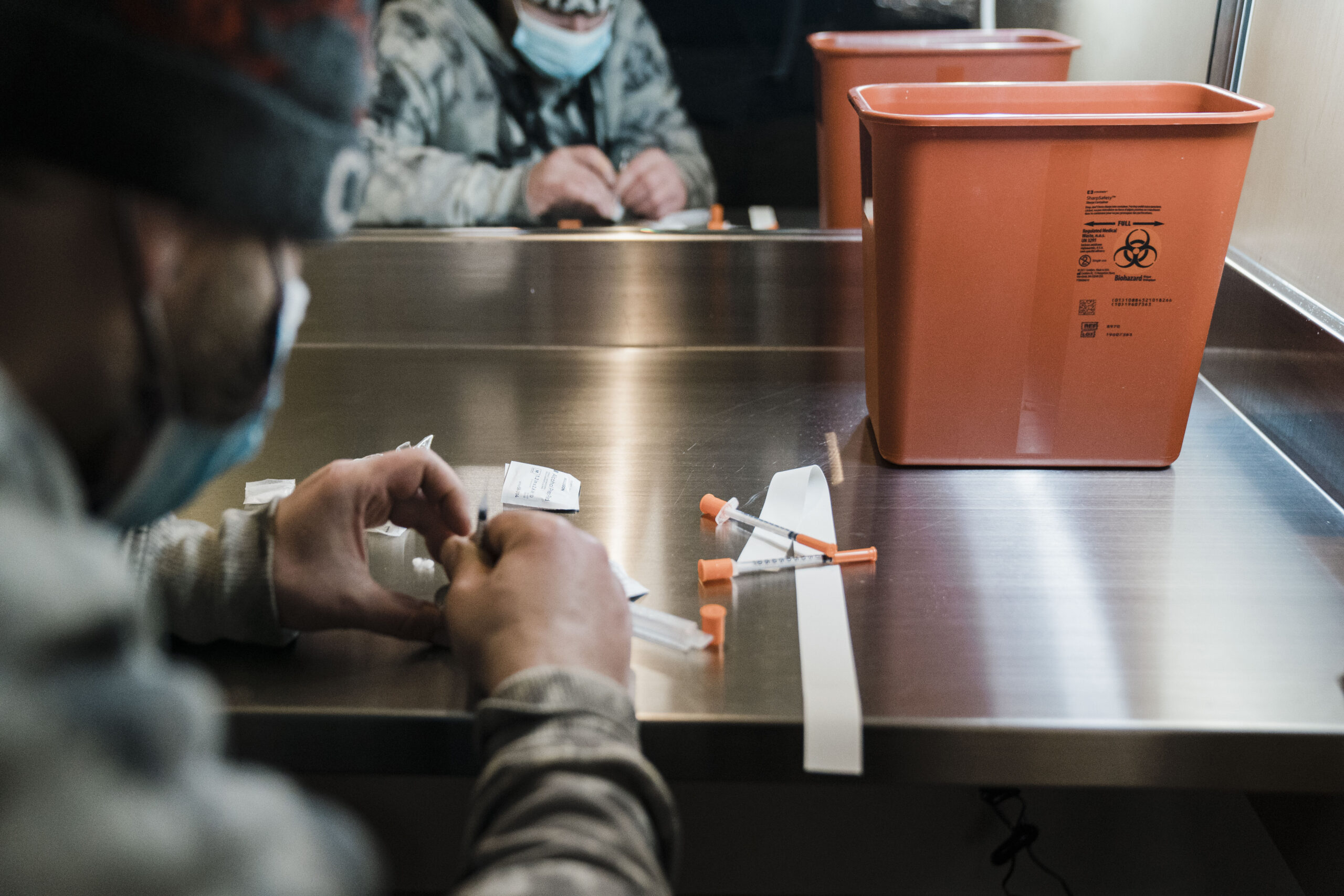With the push for safe consumption sites gaining momentum in San Francisco, a new documentary reveals the potential upside that such a center could provide.
Love in the Time of Fentanyl, premiering on PBS Feb. 13 as part of the network’s Independent Lens series, showcases the Overdose Prevention Society (OPS), a supervised drug injection site in Vancouver, Canada.
OPS founder Sarah Blyth opened the site without waiting for government approval, creating a center that primarily employs active and former drug users.
The documentary offers an inside look into what day-to-day operations look like at a safe consumption site at a time when debates over their efficacy and legality are raging in the Bay Area.
Viewers have the opportunity to see the often-stigmatized lives of those addicted to drugs up close, humanizing a portion of the population that is frequently villainized.
“As the U.S. now faces over 100,000 overdose deaths a year, I hope this film can provide a window for American audiences into the inner workings of an overdose prevention site,” said Colin Askey, the film’s director.
The fentanyl crisis in San Francisco is reaching epidemic proportions, with more than 144 pounds of fentanyl seized by the San Francisco Police Department in 2022, a year in which local emergency workers reversed 2,848 overdoses. Complicating matters are new Narcan-resistant drugs on the streets, which make the possibility of reversing overdoses less likely.
While some locals believe the city could make a serious dent in the crisis by taking a harder line on open-air drug dealing, others are pushing for legalized consumption sites. Proponents of this controversial harm-reduction strategy argue that by providing users with a place to consume drugs under medical supervision, the city will be able to act faster to reverse overdoses and more effectively urge addicts into recovery. Legislation is in the works to permit a nonprofit to open such a center.
Safe consumption sites remain illegal under federal law, and it is unclear how such a nonprofit would be funded. Still, advocates support the idea of opening safe consumption sites—even without federal approval—by citing their efficacy.
“They have proven to save lives around the world for over 35 years,” said Askey.
Askey focuses on projects related to harm reduction, drug policy, anti-poverty and social justice. Askey’s recent work includes, “Haven,” a short documentary about North America’s first prescription heroin therapy program.
“I hope that audiences draw inspiration from this beautiful band of misfits who fight with radical compassion and love for their community in a way that we all can learn from,” Askey said.
